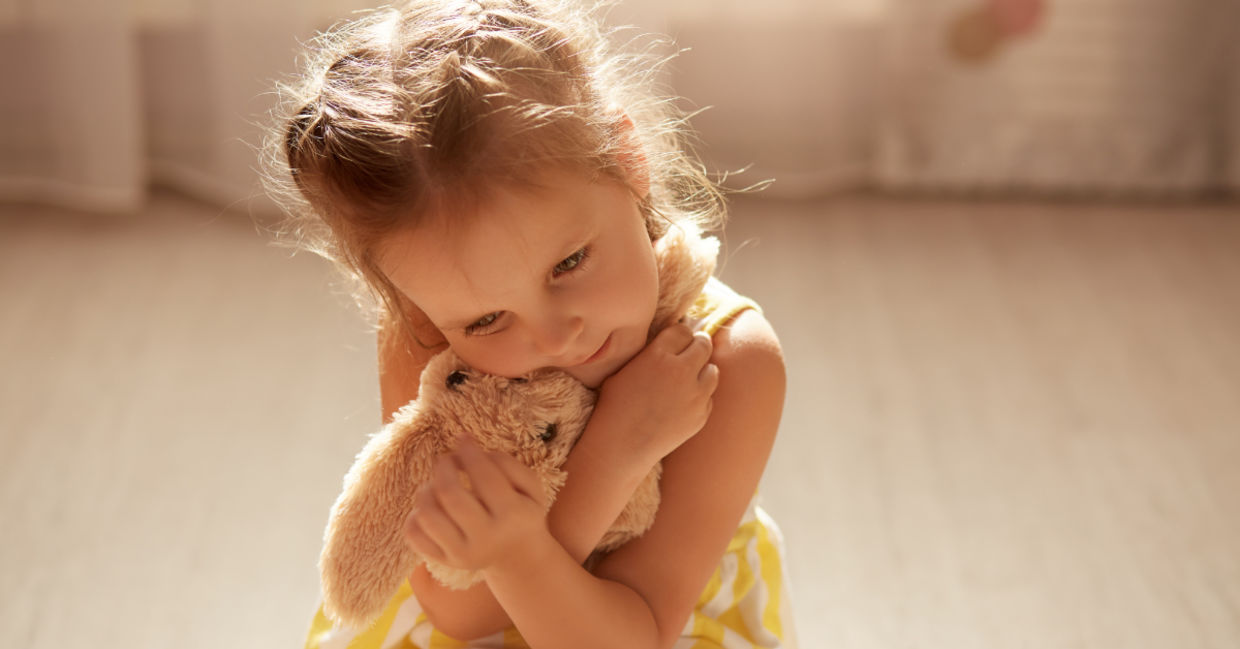
(StoryTime Studio / Shutterstock.com)
In the midst of conflict and upheaval, children often find themselves grappling with trauma that can have lasting effects on their mental wellbeing. The Jewish Chronicle reports about an innovative solution that has been offered to help Israeli children struggling to cope in the wake of the horrific Hamas terror attack on October 7th. Meet "Hibuki," the therapeutic stuffed toy that has become a beacon of hope for thousands of children navigating the challenges of war and conflict around the world, as the Hibuki Website explains.
Origins of Hibuki: A Response to Trauma
Translated as "my hug" from Hebrew, Hibuki was created in 2007 to address the emotional toll on children during the Second Lebanon War. Collaboratively developed by the Joint Distribution Committee (JDC) and the Ministry of Education's Psychological Counseling Services, Hibuki emerged as a tangible and comforting tool to assist children in coping with trauma.
Hibuki is not just a plush toy; it represents a compassionate response to the unique needs of children navigating the complex emotions associated with conflict. Its soft embrace serves as a therapeutic intervention, providing comfort and security during times of distress.
“Hibuki is a therapy toy. It has extra-long arms, and it’s good at hugging. It has a very sad face,” she said. “It’s a very simple and obvious emotion and reflects a child’s face. Anybody can tell how Hibuki feels,” Dafna Sharon Maksimov, the Israeli co-founder of Hibuki therapy, told JNS.
The heart of Hibuki: nurturing resilience
At the core of Hibuki Therapy is a commitment to nurturing resilience in children facing adversity. The therapeutic benefits of this huggable companion extend beyond the immediate comfort it provides. By integrating Hibuki into psychological counseling services offered to Israeli kids, they are encouraged to express their emotions, build trust, and develop coping mechanisms that empower them to navigate the complexities of their experiences. When children are asked to take care of Hibuki, their focus shifts to the problems of the toy.
““It’s a specific attempt to reduce anxiety and offer some calm and safety for these children. When there is mass trauma the quicker you can get children the dolls the better. The group trauma therapy with the dolls tries to prevent PTSD. The first question therapists ask children is: ‘How do you think Hibuki is feeling?’ This can be a way for young children to explain their emotions and experiences through the toy. One kid might say that Hibuki is feeling really angry, and you can ask him why.” Dani Franks, MyIsrael founder, who has launched an appeal to expand the toy-based therapy to Israeli children, told the Jewish Chronicle.
Franks explained that one child said his Hibuki was stuck in a suitcase, had no food and could not breathe or go to the bathroom. “This was a child explaining their experience inside a safe room on October 7 via the doll. The therapist asks: ‘How do you think we can make him (Hibuki) feel better?,’”Frank stated.
The global reach of Hibuki therapy
As conflicts persist globally, the need for innovative approaches to support children in crisis remains crucial. JNS reports that during the ongoing war in Ukraine, Hibuki Therapy played a pivotal role in helping over 20,000 children manage persistent trauma. The principles that originated in Israel have transcended borders, offering solace to young minds affected by the harsh realities of war. The impact of Hibuki goes beyond cultural and geographical boundaries, showcasing its adaptability and relevance in diverse contexts.
Hibuki is a symbol of hope and healing. The story of this therapeutic toy is a testament to the power of innovation and compassion in addressing the unique needs of children affected by trauma, offering them a tangible source of comfort and strength as they navigate the path towards recovery.
YOU MIGHT ALSO LIKE:
How Baby Dolls Are Helping Alzheimer's Patients to Enjoy Life
The Therapeutic Power of Music
Paws of Positivity: Specially Trained Dogs Lift Spirits in Israel







